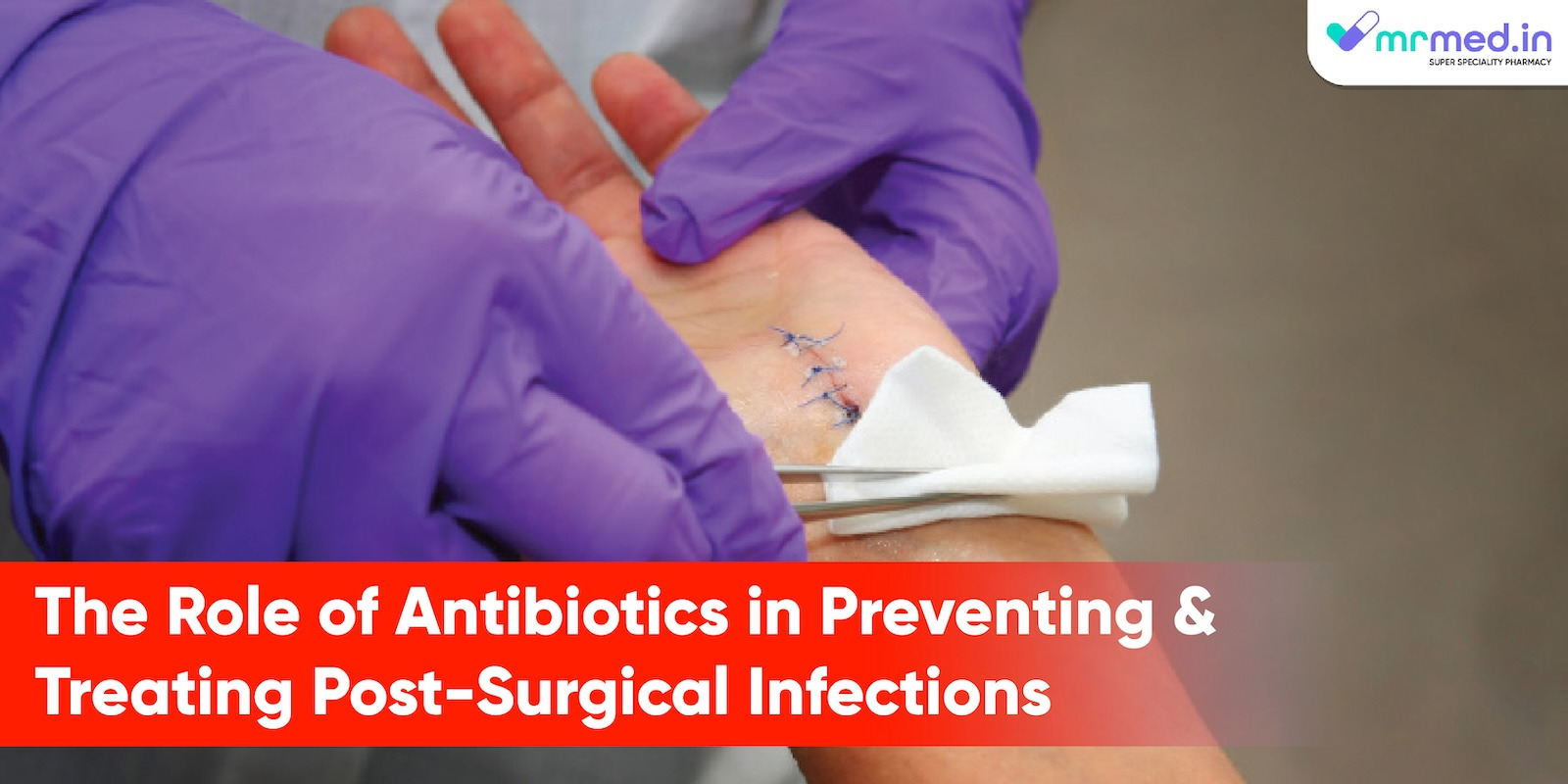Post-surgical infections can pose significant risks to patient recovery and overall health. Antibiotics play a critical role in preventing and treating these infections, ensuring that surgical procedures are as safe and effective as possible. This article explores the role of antibacterial medicines in managing post-surgical infections.
Is post-surgery infection serious?
Post-surgical infections occur when bacteria enter a wound during or after a surgical procedure, leading to complications such as wound infections, sepsis, or abscess formation. If not managed promptly, these infections can delay healing, increase hospital stays, and lead to severe outcomes.
- Types of Infections: Common post-surgical infections include surgical site infections (SSIs), which can range from superficial infections involving the skin to deeper infections involving organs and tissues.
- Risk Factors: Factors such as poor surgical technique, contamination, and patient-related factors like diabetes or immunosuppression can increase the risk of post-surgical infections.
What antibiotics are used to prevent infection after surgery?
Preventive use of antibiotics is essential in reducing the risk of post-surgical infections.
- Prophylactic Antibiotics: Administering antibiotics before or during surgery can help prevent infections by targeting potential pathogens. For instance, Taxim O 200mg Tablet, which contains Cefixime, is used in order to avoid infections in certain surgical procedures.
- Timing and Dosage: The effectiveness of prophylactic antibiotics depends on timing, dosage, and the choice of antibiotic. They are usually administered within an hour before the incision is made and may be continued for a short period post-surgery.
How to treat post-surgery infection?
When infections occur, timely and appropriate treatment is crucial for successful management.
- Empirical Therapy: Initially, broad-spectrum antibacterial medicines may be used to cover a wide range of potential pathogens until culture results are available. Cefixime, a common choice, is effective against various bacteria.
- Targeted Therapy: Once the specific pathogen is identified, antibiotics can be adjusted to target the particular bacteria causing the infection. This approach helps reduce the risk of resistance and ensures effective treatment.
Monitoring and Follow-up
Monitoring patients after surgery is essential to ensure that infections are effectively managed and to prevent complications.
- Wound Inspection: Regular inspection of the surgical wound can help detect early signs of infection, such as increased redness, swelling, or discharge.
- Adjustments in Therapy: Based on the patient's response to treatment and culture results, adjustments in antibiotic therapy may be necessary to ensure optimal outcomes.
Preventing Antibiotic Resistance
Antibiotic resistance is a growing concern and can impact the effectiveness of treatment for post-surgical infections.
- Appropriate Use: Using antibiotics only when necessary and following prescribed dosages can help prevent resistance. Overuse and misuse of antibiotics contribute to the development of resistant bacteria.
- Stewardship Programs: Implementing antibiotic stewardship programs in healthcare settings helps promote the responsible use of antibiotics and reduce the risk of resistance.
Alternative and Adjunctive Measures
In addition to antibiotics, other measures can support infection prevention and treatment.
- Sterile Technique: Adhering to strict sterile techniques during surgery helps minimise the risk of infection.
- Wound Care: Proper wound care and hygiene practices, including keeping the wound clean and dry, are crucial for preventing infections.
Antibiotics play a vital role in preventing and treating post-surgical infections. The use of antibacterial medicines is essential for managing these infections effectively. By employing appropriate prophylactic and therapeutic strategies, along with monitoring and preventive measures, healthcare providers can enhance patient outcomes and reduce the risk of complications associated with post-surgical infections.
Ensuring the judicious use of antibiotics and addressing factors that contribute to resistance is key to maintaining their effectiveness in managing infections.
What is the most important factor in the prevention of post-operative infection?
Preventing postoperative infections is critical to patient safety and recovery. The most crucial factor is maintaining strict surgical asepsis and hygiene protocols. Here are five key aspects:
- Sterile Surgical Environment: Ensuring that the surgical environment, including instruments, equipment, and personnel, is sterile significantly reduces the risk of infections. This includes proper sterilisation of all surgical tools and the use of sterile drapes and gloves.
- Proper Skin Antisepsis: Effective antiseptic preparation of the surgical site can prevent the introduction of bacteria into the surgical wound. This involves cleaning the area thoroughly with antiseptic solutions before incision.
- Controlled Operating Room Traffic: Limiting the number of personnel and movement in the operating room minimizes the risk of contaminating the sterile field, helping maintain an infection-free environment throughout the procedure.
- Postoperative Wound Care: Proper wound care is essential post-surgery to prevent infections. This includes regular inspection of the wound, appropriate dressing changes, and educating the patient on signs of disease and proper care techniques.




